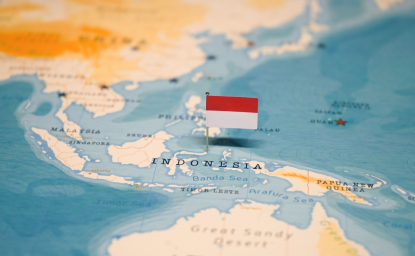The Kurds have never been as influential in the Middle East as they are today. They hold the balance of power in Iraq and Syria, and are in the midst of an insurrection in Turkey. But this Kurdish awakening is different from previous ones — in Iraq in the 1970s or Turkey in the 1990s. Powers great and small have to contend with Kurdish demands as never before.
The US finds itself reluctantly drawn into this Kurdish denouement; it needs the Kurds as much as it needs the Turks in its efforts to defeat ISIS, the jihadi group. Yet America’s primary ally in Syria, the Kurdish Democratic Union party (PYD), is being bombarded by its longstanding NATO ally, Turkey. The PYD has proven itself to be the most, if not the only, effective force against ISIS; almost all the territory the jihadis have lost since conquering parts of Iraq and Syria in 2014 has been to PYD militias working in tandem with the US air force. The Turks consider the PYD, which is intimately linked to the Turkish Kurdistan Workers’ party (PKK), as nothing more than a terrorist organisation.
While the US cannot satisfy all parties, the current conundrum also offers opportunities to Washington to push for a grand bargain between Turkey on the one hand and the Syrian and Turkish Kurds on the other that would benefit all sides involved in the region, as well as the US and its struggle against ISIS.
There is also a sense of urgency as Turkey’s president, Recep Tayyip Erdogan, mired in his own controversial effort to transform the Turkish republic from a parliamentary system into a presidential one that would give him wide if not unlimited powers, engages in a dangerous game of brinkmanship.
He has raised the political ante not just by shelling PYD positions in Syria — shells are designed to hurt the PYD as much as disrupt the PYD-American relationship — but also attributing a recent terrorist attack in Ankara to the PYD, despite the latter’s denials and the rest of the world’s disbelief. Turkey does not want to differentiate between the PKK and the PYD, despite the efforts of PYD leader Salih Muslim to convince the Turks that the group has no design on Turkish territory and, on the contrary, seeks to co-operate with Ankara.
What worries Mr. Erdogan is that in three of the countries with sizeable Kurdish minorities — Turkey, Iraq and Syria — the Kurds are on the move. Only in Iran has the regime been more or less successful in holding down overt manifestations of Kurdish nationalism, and then only through repression.
Iraqi Kurds, thanks to American intervention, have now established an internationally recognised autonomous federal zone in northern Iraq. Ankara has excellent relations with the leadership of the Kurdistan Regional Government, KRG, and is its single-most important trading partner. The KRG remains an important, if incomplete, symbol of Kurdish self-determination.
Turkish Kurds have either been in a state of insurrection or resolute political activism since the 1990s. That has been down to the PKK’s prowess and, more recently, because the main Kurdish political party, the People’s Democratic party, or HDP, performed extremely well — and won support from a broad range of liberal Turks — in the first of two national elections in 2015.
The Kurdish issue has come to dominate Turkey’s politics. In the process, it has also transformed itself from a primarily rural to an urban and far more sophisticated movement.
Mr. Erdogan fears that out of the ashes of the Syrian civil war, a new Syrian-Kurdish KRG-like state will arise. Turkey could then face two autonomous Kurdish neighbours on its southern border. This may lead Turkey’s Kurds to seek the same. To his credit, Mr. Erdogan had begun peace negotiations with the PKK. However, he repudiated the agreement (which had been signed by his lieutenants) when the PKK rejected his demand that it force the PYD to abandon its quest in northern Syria.
The present situation is unstable and could spin out of control, especially with Mr Erdogan calling on the US to choose between Turkey and the PYD. There is, however, a win-win bargain that the US could broker. In exchange for a ceasefire and withdrawal of PKK combatants from Turkey into northern Iraq and Syria, Turkey would promise not to interfere in Syrian Kurdish territories.
The advantages of this deal would include a cessation of the hostilities in Turkey that have left parts of Kurdish areas as devastated as Syrian cities, and claimed the lives of hundreds of civilians and more than 300 security personnel. A deal would also allow the PYD and the US to focus on ISIS, while also strengthening the Syrian Kurds’ claim for an equitable post-civil war outcome.
This article was originally published in The Financial Times.
The opinions expressed here are solely those of the author.





